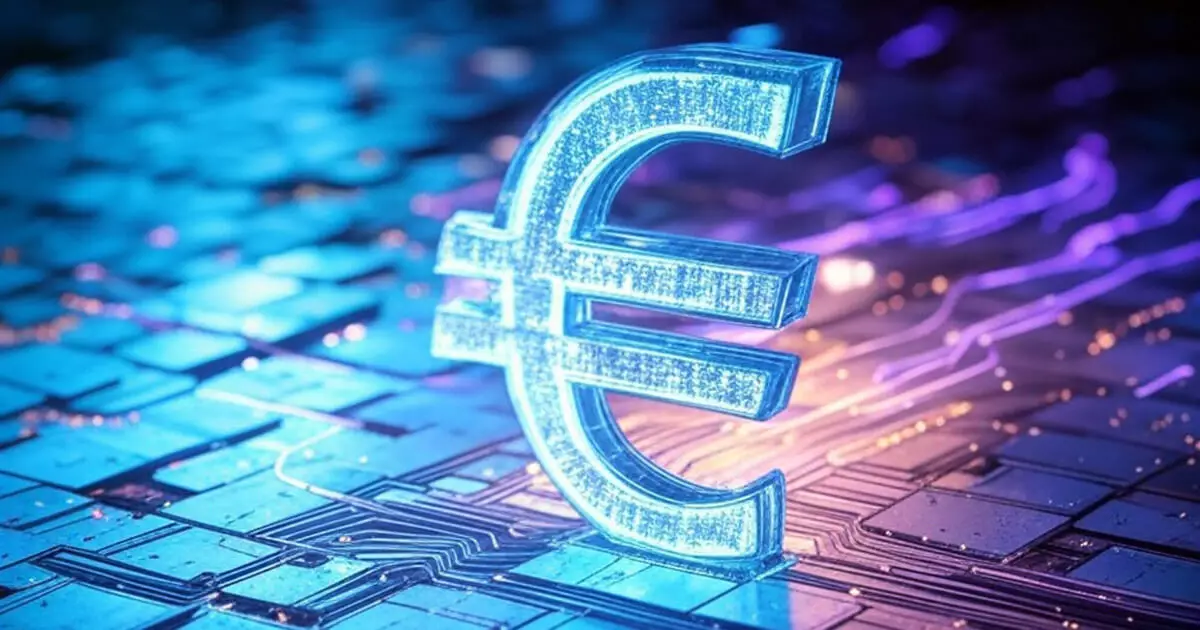In an era characterized by constant geopolitical instability, the call for a digital euro transcends mere convenience; it is a necessity for preserving Europe’s financial sovereignty. ECB Chief Economist Philip Lane recently articulated that a central bank digital currency (CBDC) could crucially mitigate risks associated with the exponentially growing use of stablecoins, particularly those tethered to the US dollar. As nations grapple with the implications of digital currencies, Europe must assert its independence. This isn’t just about innovation; it’s about survival amidst an increasingly fragmented global financial landscape.
The Threat of Dollar Dominance
Lane’s analysis points out a significant vulnerability: Europe’s heavy dependence on US payment giants like Visa, MasterCard, and PayPal. This reliance is more than a mere inconvenience; it poses a systemic threat to Europe’s financial stability. Through this lens, the digital euro serves as a firewall against the pervasive influence of US financial institutions. By establishing a digital currency firmly rooted in European regulatory and economic frameworks, Europe can limit foreign-currency stablecoins from infiltrating the eurozone, thereby securing its own economic interests.
A Unified Payment Ecosystem
The fragmentation of Europe’s payment systems is a growing concern that Lane underscores effectively. A digital euro could act as a cornerstone for a more cohesive financial infrastructure, promoting collaboration among banks and payment service providers. This is essential not just for the sake of modernization, but for ensuring that transactions within Europe remain robust and efficient. The potential unification of retail payments that a digital euro promises could decrease transaction costs and bolster consumer confidence in European products and services.
The Call for Timely Implementation
The situation is becoming increasingly urgent. ECB President Christine Lagarde highlighted the need for Europe to expedite the development of both retail and wholesale versions of the digital euro. The preparatory phase of the project, which is set to conclude in October, cannot rest on its laurels. With ECB officials consistently echoing the need for a digital euro, it is apparent that the momentum is building. The commentary from ECB Governing Council members regarding the risks posed by US-initiated cryptocurrency trends adds another layer of complexity, underscoring the pressing need for Europe to take definitive action.
Confronting New Financial Realities
The digital euro stands at the intersection of traditional banking and modern financial realities. As noted by ECB board member Piero Cipollone, the rise of stablecoins could undermine traditional banking systems, eroding long-established relationships with clients. By promptly launching a digital euro, Europe could counteract this trend, re-establishing a measure of control over its monetary system. The need for a proactive approach to state-sponsored digital currencies has never been more critical; failing to act risks allowing external forces to dictate the future of European finance.
The need for a digital euro is profoundly intertwined with Europe’s financial autonomy, economic resilience, and long-term prosperity. As authorities continue to deliberate on this pivotal initiative, the calls for action must grow louder and clear, framing the digital euro not merely as an option but as an essential component of Europe’s economic strategy moving forward.


Leave a Reply